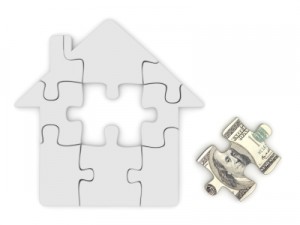July 11th, 2010
Some folks right now are in a financial crisis because they used credit cards to give themselves instant gratification. Others are struggling due to illness, divorce, job loss, or cutbacks in pay.
Whatever the reason, their credit scores have dropped to the basement.
If you’re in this situation, you know that having low credit scores is expensive. From the interest rate you pay when you borrow to the premiums on your insurance, you’re penalized when your scores are low. And because of those added costs, it can seem impossible to get ahead. If your credit scores have dropped and you have outstanding credit card balances, the bulk of your monthly payment is going to interest.
But feeling sorry for yourself never helped anyone, so the best course of action is to adopt a new attitude, set a goal for success, and turn raising your credit scores into a game.
How can this be fun? Because the outcome is so positive. And because regaining your financial status can feel like a way to “get even” with the banks who raised your interest rates. Sad but true, many consumers today see the banks as greedy giants trying to suck away their money. Preventing that can feel mighty good, and keeping all the money you’re now paying in interest will feel good too.
First, order your free online credit report with scores, so you can see exactly where you stand right now. Watching your scores go up will be part of the fun. Then, create a budget and a payment timeline – so that you never, ever, waste money on another late payment.
Then find ways to can pull a few dollars here and there from your monthly spending – and use those dollars to get rid of your debt.
Finding many small ways to cut expenses can turn into a game if you approach it with the right attitude. And one dollar here and five dollars there can really add up over the course of a month. Once you get started you’ll probably be shocked at how many dollars you can keep in your wallet when you pay attention.
When you use the “found money” to eliminate debt, you will feel like a winner – especially when you watch your credit scores rising - and when you know that you will never pay another dime in interest on the debt you’ve eliminated.
CreditScoreQuick.com
Posted in Uncategorized | Comments Off
July 6th, 2010
 Learn how Credit Cards can help your Credit Score. Learn how Credit Cards can help your Credit Score.
About 10% of your credit score is based on the variety of credit that you use. For the best results you need to show that you’re capable of handling more than one credit account, but does the kind of credit matter?
Yes, it does. Creditors like to see a home loan or a car loan in addition to a credit card. And the type of credit card does matter.
The FICO scoring algorithm treats bank cards as being more important than retail store cards. It doesn’t matter if your credit card is issued by a big bank or a credit union, however.
As long as you do have some kind of revolving account – such as a department store card – you can still earn a score in the 700’s. But wise use of a credit card that can be used everywhere cards are accepted will gain you a few points in this scoring category.
If you’re trying to build or rebuild your credit, the good news is that secured credit cards count as much as unsecured cards. These credit cards are all treated equally on your credit report. So if that’s all you’ll qualify for at this point, it will still help you.
Another 10% of your score is made up of new credit and new credit inquiries. If you’re working toward higher scores, you should refrain from asking for more than just the one bank card that you need to raise your scores in that category. Additional inquiries will lower your scores.
Next in importance, at 15%, is the length of your credit history – so never cancel an old credit card. Keep it, use it occasionally, and pay the balance when your statement arrives.
The amounts you owe relative to the credit available to you makes up 30% of your score. This is why we stress never using all your credit. Experts say to keep your use under 30% – and staying under 10% is even better. That excess credit available to you should be kept in reserve for emergencies only!
Finally, the largest factor is your payment history, at 35% of your score. Paying every bill on time is the single most important thing you can do to assure a high credit score. So create a budget system for yourself that ensures that you have the money available when those bills are due.
Planning ahead for those due dates will not only help you raise your credit scores – it will save you money. At $39 every time a payment is late by even 10 minutes, penalty fees can create a serious drain on your bank account.
CreditScoreQuick.com
Posted in Uncategorized | 1 Comment »
July 4th, 2010

The New Fannie Mae Home Affordable Foreclosure Alternatives Program
The new HAFA program will go into effect on August 1, and could provide some relief for both homeowners and their real estate agents. This is not a program to keep homeowners in their homes, except possibly as renters. It’s designed to streamline short sales and deed in lieu procedures.
According to Fannie Mae’s Announcement SVC-2010-07 dated June 1, 2010:
“All servicers must implement Fannie Mae’s HAFA for all conventional mortgage loans that are held in Fannie Mae’s portfolio, that are part of an MBS pool that has the special servicing option, or that are part of a shared-risk MBS pool for which Fannie Mae markets acquired the property.”
They are “encouraged,” but not required, to use it for loans that don’t fit these guidelines.
This program is “designed to mitigate the impact of foreclosures on borrowers who are eligible for a loan modification under the Home Affordable Modification Program (HAMP), but ultimately were unsuccessful in obtaining one.”
Before you qualify for HAFA you must first attempt to use HAMP. Then if you’re unsuccessful in getting a loan modification, you can use the same financial and hardship information to apply for HAFA – eliminating re-evaluation.
The next point says: “Allows the borrower to receive pre-approved short sale terms prior to the property listing.” If that means the banks are required to provide the information, it’s a huge plus for real estate agents and consumers attempting to buy short sale
properties.
Of course, using this program will place an added burden on the listing agents and the servicers. The requirements are stringent. Here’s one of them:
- Obtain monthly geographical comparables from the listing agent to determine whether the local market conditions have changed;
Under HAFA borrowers will be fully released from future liability for the debt, eliminating the need for agents to negotiate this point for their sellers. It also prohibits the servicer from demanding forfeiture of the agent’s real estate commission as a condition of short sale approval.
Finally, both the servicers and the borrowers are given a financial incentive. Servicers will receive a $2,200 fee for a short sale, or a $1,500 fee for Deed in Lieu
Borrowers will receive $3,000 to assist with relocation expenses.
This program is not a free ride for homeowners who simply want to get out from under their mortgage debt. It is for those who actually cannot pay and who would otherwise go into foreclosure.
Servicers are required to consider whether the borrower has:
- the ability to continue making the mortgage payments
- substantial unencumbered assets or significant cash reserves equal to or exceeding three times the borrower’s total monthly mortgage payment (including tax and insurance payments) or $5,000, whichever is greater; or
- high surplus income
These transactions will, of course, be reported to the credit bureaus. So there is no “free ride” for credit scores, either.
The primary benefits for homeowners will the avoidance of a drawn-out foreclosure process and the $3,000 cash for moving expenses.
As for the taxpayers… Who is paying these incentives? The banks, or the treasury?
To read the complete 22 page announcement of the new HAFA program, go to https://www.efanniemae.com/sf/guides/ssg/annltrs/pdf/2010/svc1007.pdf
CreditScoreQuick.com
Posted in Uncategorized | Comments Off
July 3rd, 2010
Do what the Millionaires Do….. Shop Smart.
For many, a car payment is a constant. From the time they were old enough to get a loan – or get a parent to co-sign on a loan – they’ve had a car payment. It’s as if that was simply a required cost of living.
Some keep a car only a year or two before it gets “traded in” on a new model. It’s a matter of pride and self-esteem to be driving something new and shiny. And of course, since cars lose a huge percentage of their value as soon as they’re driven off the lot, these folks just keep sinking farther into debt.
After only a year or two of payments the equity on the old car is usually nil, and the new car costs more. So the payment goes up from year to year – or car to car.
This is especially true if the consumer has low credit scores. Most people can get a car loan, but only those with the highest credit scores get the rates they advertise on television. And on a $15,000 car loan, the difference between an advertised 2% rate and an actual 14% rate is about $185 per month.
If you long for a new car, exercise patience. Save for a large down payment. And before you shop, check your free online credit report with scores. If your scores are still low, work on credit repair until they’re high enough to let you qualify for a good rate.
Interestingly, in “The Millionaire Next Door,” Thomas Stanley and William Danko point out that millionaires – at least the self-made variety – do not have these self-esteem and pride issues. When they buy a car most of them choose not to buy brand-new. Instead, they’ll choose a car that has been used as a demo model, or a newer rental return unit. They choose to avoid that huge hit that a car’s value takes the minute it has 10 miles on the odometer.
So – copy the millionaires. Don’t let false pride put you in “bad debt.”
Is a car loan always bad debt?
Given the fact that a motor vehicle will quickly decline in value, automobile debt is known as “bad debt.” But is it always bad debt?
No, not always. Especially given the current price of gas.
If a person is driving 60 miles to get to work each morning in a vehicle that gets 8 or 10 miles per gallon, he or she is using 12 gallons of gas or more per day. At $3 per gallon, that’s $36 per day.
Driving an economy car that gets 30 miles per gallon would use only 4 gallons, or $12 per day. A savings of $24 per day for 20 work days amounts to $480 per month, so a car payment of less than $480 would be a wise investment, especially since a new car comes with a warranty and new tires.
However, for those whose commute is short, financing a new car does mean taking on “bad debt.”
CreditScoreQuick.com
Posted in Uncategorized | Comments Off
July 1st, 2010

Plugging Money Leaks to Increase Your Credit Scores
The financial gurus say to pay down your debt if you want your credit scores to rise. That’s sound advice, right? But you may think that there’s no room in your budget for the extra money to pay down debt.
The truth is, if you’re like most people, your wallet may be spilling money like the Gulf is spilling oil. It’s just not as obvious.
How to stop the “money spill?” Start with a budget.
I know – no fun. But you do need to know how much money you need to cover the necessities, and you need to know when that money has to be paid. Not keeping track of credit card payment dates leads to late payments, and late payments lead to late charges – and late charges are a serious money spill.
Unless you’re a freelancer or commission-based, you know how much money you take home each week or month. Write that down. Now write down all those set obligations –like credit card payments – along with their due dates. Subtract outgo from income and you’ll know how much money each week is already “spoken for.”
You’ll probably see that you have more money “left over” than you expected, because that extra money has been leaking out of your wallet a few dollars at a time without you noticing it.
It leaks out for little things – items that cost $10, $5, or even $1. Instead of filling a travel mug at home, you stop for a coffee on your way to work. If you rent a movie you pick up some candy. If the kids go along to the grocery store you give them each fifty cents to put in the vending machines. If you see tank tops for $3 each you buy 3 – even though you have 6 in a drawer at home.
To stop the leaks: Before you buy anything, ask yourself “Do I really need this? Will I really use this? Will this add value to my life?” If the answers are no – keep the money and use it to pay down your debt.
If you add even $100 per month to your debt repayment, your credit card balances will start declining, and your credit scores will begin creeping upward. Remember – every dollar you pay down will never cost you another dime in interest charges.
Finally, before you put any expense on a credit card, ask yourself if you’ll be able to repay it in addition to your next monthly payment. If the answer is no, and the expense isn’t an emergency purchase, then just don’t buy.
Mike Clover
CreditScoreQuick.com
Posted in Uncategorized | Comments Off
June 27th, 2010

Our military men and women on active duty are often called upon to put their lives on the line while often enduring living conditions most of us would consider cruel and unusual punishment. They also endure spending months away from their loved ones, who may be facing financial struggles in their absence.
If anyone deserves to benefit from government programs, they do. And fortunately there is some help available to these families.
In 2003, President George W. Bush signed the Service members Civil Relief Act (SCRA), which expands on the Soldiers and Sailors Civil Relief Act of 1940.
Help with debt:
One of the most beneficial provisions of this act regards debts that the service member incurred prior to entering active duty. Under SCRA, creditors may collect no more than 6% interest on these debts during the period of active duty.
While many home loans are already less than 6%, this provision also extends to car loans and credit card debt. The interest forgiven during this time may not be added into the principal balance, and the monthly payment must be reduced to reflect the lower interest rate. Once active duty is terminated, the payment will return to it’s pre-service level.
The catch is, it isn’t automatic. The service member must request the interest rate reduction in writing and must submit several documents – including a copy of military orders. Also note that this provision doesn’t extend to new debt incurred during military service.
Help with moving:
The law allows for termination or cancellation of real property leases when a service member is re-assigned. It also allows for termination of automobile leases without penalty.
A provision of the Joint Federal Travel Regulations assists with a hardship that is not only possible but likely in the current housing climate. This provision establishes that local moves can be paid for by the military if a service member is forced to move because his or her landlord has been foreclosed on.
Help with taxation: We know that many reserves who are called to active duty leave high-paying jobs to serve on active duty. Thus, their spouses are forced to scale back on living expenses and try to fill the income gap with additional employment.
Another provision of the SCRA prevents a form of double taxation that can occur when a spouse works and is taxed in a state other than the state in which they maintain their permanent legal residence. Under SCRA, states may not use the income earned by a service member in determining the spouse’s tax rate.
Help with money management:
For military families who need financial advice, financial counselors, financial planners, and tax consultants are available at military installations and on line at the Department of Defense Military OneSource website. Military members and their spouses are entitled to 12 free sessions per year.
CreditScoreQuick.com
Posted in Uncategorized | 1 Comment »
June 24th, 2010

Mortgage Interest rates are at record lows, but is anyone buying?
With mortgage rates at 4.5%, you would think homes sales would be through the roof. The last time we saw rates this low was back in 1950′s. I have been in real estate since 2002. During that great time in real estate my phone was ringing until 10 O’clock at night. This took place 7 days a week.
Now my phone barely rings. What in the world is going on? Does anyone want to buy a home with rates this low? What is the difference now compared to then? There are many questions currently about our countries economic health. Typically when real estate picks up that is a sure sign of a recovery. Did all the government incentives really help?
This economy is like a yo-yo. A comeback is on the horizon because home sales are up, and then all the sudden they are down. There are multiple factors causing this. The main issue is perception. Most potential home buyers are worried about their job. Others don’t have the credit score or money for money down payment. The restrictions with lenders are partly to blame.
Back during 2002 a buyer only needed a 580 credit score and a pulse. Now with most banks you need between a 620 to 660 credit score along with down payment. The loan type is determined by down payment and credit score. The most popular loan currently is FHA. This loan only requires 3.5% down and a credit score of 620 with most banks.
I know the biggest factors are job loss, bad credit and uncertainty. Even though here in Texas our economy is better than most, 20 plus year veterans claim this is worst real estate market since the 80’s.
It is really hard to buy a home if you just lost job your job or a home. I pull credit reports all the time and they are littered with collections and foreclosures because of job loss. Until job stability and credit restoration takes place, it will be tough for a recovery. I think we have another 4 to 5 years before we see a rebound. The country has been hit too hard for this to be a speedy process.
During the meantime I promote better credit education. When you have money saved, job stability and healthy credit scores the sky is the limit.
Mike Clover
CreditScoreQuick.com
Posted in Uncategorized | Comments Off
June 23rd, 2010

How to Repair your Credit Report.
It is not necessary to hire a professional credit repair company after you read this article. You can repair your credit report yourself. Avoid the high fees that credit repair companies charge. The FTC will back me on this one.…
Step: 1 Get a copy of your credit report. You can go to www.annualcreditreport.com and get your credit report once a year for free. We recommend getting a 3 bureau credit report. The information can be different with each bureau. So a 3-in-1 credit report will give you a complete view of your credit history. We promote credit reports with credit scores, so if you want your credit scores you can use a credit report comparison site to do so. Nether less, in order to repair your credit you need to know what is on your report.
Step: 2 Review your credit report. Get a highlighter and make notes of information that is not correct.
• Collections that are over 7 years old
• Collections that are not yours, information that has been reported late incorrectly, etc….
• Duplicate information such as collections that have been sold to different companies
• Credit Cards that are maxed out
Step: 3 Dispute inaccurate information. Under the Fair Credit Reporting Act you have the right to dispute anything on your credit report that is not correct. Don’t waste your time with disputing information you actually owe, unless it meets one of the following.
Example Collections:
Derogatory expirations guidelines:
• Chapter 7 – 10yrs
• Chapter 13 – 7 yrs
• Tax Lien – Until paid off
• Child support – Until paid off
• Collections – 7yrs
• Charge Offs – 7 yrs
• Late payments – 7yrs
• Inquires – 24 months
• Foreclosure – 7 yrs
• Repossession – 7 yrs
• Judgments – 7yrs
-Guide for disputing credit report
Step: 4 Negotiate problem accounts. Payment history accounts for 35% of your overall credit score. Don’t be late on any obligations. If you are behind with a creditor get that payment caught up. Accounts that have gone to collection, work out payment arrangements, or settle on the account for less than the balance owed. Most creditors and/or collection companies will work out settlements with you. I have always recommended paying pennies on the dollar for collection accounts. It’s better to have settled on the account than not do anything. Your credit score will typically go up as soon as you settle on a account that has gone to collection or charged off. The number to these companies will be on the credit report.
Step: 5 Reduce Credit Card Debt. The amount of credit being utilized makes up 30% of your credit score. Having your credit cards charged up will drop your credit scores. Experts recommend that you don’t charge more than 30% of your overall credit limit. I personally don’t recommend charging what you can’t pay off the following month. If you have high credit card balances pay them down to at least 30% of credit limit.
Step: 6 Establish new credit. Once you have resolved your negative items on your credit report, you will need to get some good credit reporting. If you have some credit cards reporting on your credit report, then don’t be late and keep your balances low.
For those of you that need credit, go ahead and apply for a credit card. If you are denied then maybe try a department store. Typically you need a 660 credit score to get approved for a credit card. If all fails, get a secured credit card. These types of cards require you to give between $200 – $300 bucks in one of their accounts.
Finally: Make sure you make all payments on-time. Don’t sacrifice your good credit to pay off bad credit either.
Author: Mike Clover
CreditScoreQuick.com
Posted in Uncategorized | 9 Comments »
June 22nd, 2010
 There is a Short Sale buzz taking place currently. A seller in a short sale predicament will find that this buzz will be short-lived. Many professionals claim that a short sale is better than a foreclosure. I will show how this can be dead wrong… There is a Short Sale buzz taking place currently. A seller in a short sale predicament will find that this buzz will be short-lived. Many professionals claim that a short sale is better than a foreclosure. I will show how this can be dead wrong…
-A short sale is the sale of your home for less than the balanced actually owed.
-A foreclosure is where the bank pursues legal action to take back your property and all equity.
When you start the short sale approval process the bank will require you to send them a financial statement. The bank will also require you to be behind on your payments to even be considered for a short sale. The approval process can be an extremely frustrating experience. Once you have entered into the short sale process you are now dealing with the banks loss mitigation department. In short you are dealing with attorneys now. There is a chance this department could deny your short sale application. You must meet their requirements to get a short sale approved.
Let’s assume you are approved. This approval does not guarantee all offers on your home will be accepted. The short sale approval process means they will allow the sale of your home for less than what you owe. The next stage of this entire process is getting the bank to accept an offer from an actual buyer. When you get an offer on your home this process will take about 45 days to get an answer.
During this ordeal your credit score is dropping because you are no longer making your mortgage payments. There is also a slight change you will not get approved for this short sale process anyways. The reason you are signing up for this process is because you were told a short sale is better than a foreclosure right? Here is what you have not been told….
I would assume you are avoiding a foreclosure on your record so you can buy a home in the near future. Well, 99% of all short sale participants receive a 120 day mortgage late payment on their credit report. Did you know in the eyes of a bank this is considered a foreclosure anyways? I bet no one told you this. Well I will be the first to tell you. My professional opinion short sales are only beneficial for the bank and the real estate agents involved. The agent gets commission for the sale, and the bank gets the potential mortgage problem off their balance sheet.
So don’t fall for the short sale pitch, in the end a short sale is not as beneficial as some claim. There is however a slight chance you could sell your home before you get a 120 day late payment. The likelihood of you selling your home in a couple of months in this current market is slim to none…..
Author: Mike Clover
CreditScoreQuick.com
Posted in Uncategorized | Comments Off
June 20th, 2010

You may or may not believe in Feng Shui, but one of its primary rules will help rescue your finances and even increase your credit scores.
That is the rule that says you must de-clutter. In Feng Shui, the reason is to allow positive energy to flow freely, and not get “stuck” in corners piled with unused stuff. I personally do believe in energy flow, but even if you don’t, stop for a minute and think about that “stuff.”
It represents money – all of it. Those things piled in corners and stuffed in drawers are all things you or someone else bought with money. And there it sits, taking up space, gathering dust, and costing you time and trouble every time you have to dig through it and around it for something you do need and want. If you have too much of it, you may have purchased shelving systems, or even be renting space somewhere to store the excess.
And of course, the clutter and chaos in your finances cost you even more. That clutter can cause you to bounce checks, be late with payments, miss tax deductions, and more. And all of that results in a serious drain on your finances – not to mention the damage to your credit scores when the chaos causes you to miss payments.
In her book, The Courage to Be Rich, Suze Orman goes so far as to say “If you are not making the money in your life that you think you should be making, if you have debt, if you cannot save a penny, I am willing to bet that clutter is standing smack in the middle of what you have today and what you could have tomorrow.”
Suze does believe that money has a life force of its own, and that it has its likes and dislikes. It doesn’t like being stuffed in a drawer and hates being spent on useless things.
She also says “Money can’t find its way through clutter and chaos and confusion.”
Suze recommends taking a good look at the “stuff” you have surrounding you. Then, if you don’t love it, use it, or need it – get rid of it.
And there can be the beginning of your upward climb financially. After you deposit the actual “junk” in a trash bag, you can turn the rest of it into cash at a yard sale or on eBay, or you can enrich someone else’s life by donating it.
The next step involves the future.
Every time you begin to reach into your wallet for the cash or a plastic card to purchase something, stop and think: “Do I actually need this, or is it just an amusing toy?” “Will I use this beyond today, or will it be stuffed into a drawer or a closet, returning me to a state of clutter?” “If I leave this in the store, will I be sorry next week, or glad that I still have the money I would have spent?”
Learning the difference between “want” and “need” – and disciplining yourself to buy only what you actually need – can go a long way toward clearing the financial clutter and having the money to pay all your bills on time. And that will lead to high credit scores – and eventually, a fat bank account.
Author: Marte Cliff
CreditScoreQuick.com
Posted in Uncategorized | Comments Off
Disclaimer: This information has been compiled and provided by CreditScoreQuick.com as an informational service to the public. While our goal is to provide information that will help consumers to manage their credit and debt, this information should not be considered legal advice. Such advice must be specific to the various circumstances of each person's situation, and the general information provided on these pages should not be used as a substitute for the advice of competent legal counsel.

|



 Learn how Credit Cards can help your Credit Score.
Learn how Credit Cards can help your Credit Score.





 There is a Short Sale buzz taking place currently. A seller in a short sale predicament will find that this buzz will be short-lived. Many professionals claim that a short sale is better than a foreclosure. I will show how this can be dead wrong…
There is a Short Sale buzz taking place currently. A seller in a short sale predicament will find that this buzz will be short-lived. Many professionals claim that a short sale is better than a foreclosure. I will show how this can be dead wrong…
